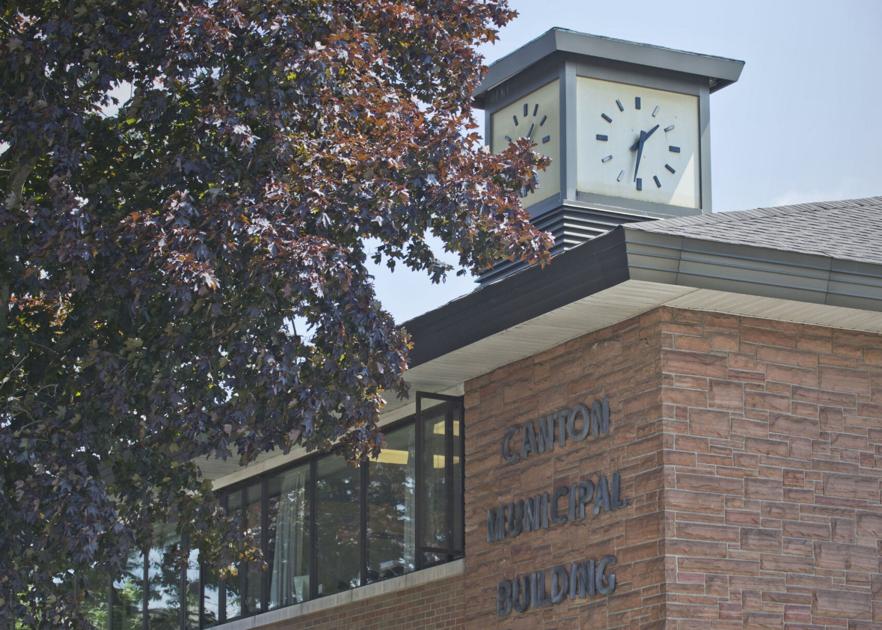
CANTON — During a special virtual meeting Friday morning, Town Council unanimously passed a resolution asking Representative Elise M. Stefanik, R-Schuylerville, and Sens. Kirsten E. Gillibrand and Charles E. Schumer to support direct federal pandemic aid for local municipalities, regardless of population size.
The state Association of Towns released a model resolution last month, asking U.S. representatives to back legislation that provides direct pandemic aid to all municipalities. The March 27 passage of the CARES Act — Coronavirus Aid, Relief and Economic Security Act — allocated $150 billion for state and tribal governments and local governments serving populations greater than 500,000.
Of the state’s 932 towns, one town, Hempstead in Nassau County, is eligible for CARES Act funding, with a population of 766,980, according to the U.S. Census Bureau. The town of Canton, 2019 estimated population 11,041, and the rest of the state’s towns are ineligible based on population size.
With unanimous passage by the town’s four-member council, the resolution, titled “Provide Direct COVID-19 Related Federal Aid to All Municipalities,” affirms the essentiality of the state’s town governments, which serve some 9 million New Yorkers and facilitate emergency response, building and code enforcement and road maintenance, among other services.
“The depletion of different revenue sources for local governments, combined with lack of funding, will result in reducing essential services or shifting the cost onto real property taxpayers, many of whom are experiencing their own financial stress,” the resolution reads in part.
In the five months since the COVID-19 global health crisis took hold in the United States, local municipalities nationwide have been prompted to adjust budgets and address revenue shortfalls related to the pandemic. Since March, Congress has passed four spending packages, totaling nearly $3 trillion, in response to the pandemic: the Coronavirus Preparedness and Response Supplemental Appropriations Act, the Families First Coronavirus Response Act, the CARES Act, which accounts for more than $2 trillion, and the Paycheck Protection Program and Health Care Enhancement Act.
Since the passage of the CARES Act, two additional federal stimulus packages have moved through Congress, the House-initiated HEROES Act introduced in May, and the Senate-initiated HEALS Act introduced last week.
The HEROES Act — Health and Economic Recovery Omnibus Emergency Solutions Act — passed the House May 15, with $1 trillion of its total $3 trillion to be allocated for state and local governments. The Republican-led Senate did not move the largely Democrat-backed HEROES Act forward, instead writing its own HEALS Act — Health, Economic Assistance, Liability Protection and Schools Act.
Of the HEROES Act’s total $375 billion in proposed local funding, $56.25 billion is allocated for government units other than counties or metropolitan cities, specifically for municipalities with populations less than 50,000. A separate $500 billion in total relief is designated for state governments.
A pair of identical Congressional proposals, the Direct Support for Communities Act, was introduced by U.S. Representatives Antonio Delgado, NY-19, and Lee Zeldin, NY-1, and Sens. Gillibrand and Schumer in May, specifically writing in direct funding provisions for municipal governments at all levels, and of all sizes.
The legislation itself has since flatlined, with Senate Majority Leader Mitch McConnell, R-Ky., not yet agreeing to bring the bill to the Senate floor, though broader local relief was incorporated into the HEROES Act.
“Direct federal relief for local governments is absolutely critical as they grapple with the economic fallout from the COVID-19 pandemic,” Sen. Gillibrand said in May. “This smart and necessary proposal will ensure local governments have the resources to pay our first responders, health care workers, teachers and public servants, and can continue serving our communities without raising taxes or fees.”
“This is about the safety and infrastructure services that keep our communities up and running, it’s about getting schools the money they need to pay teachers and make adjustments to keep our kids safe, it’s about keeping EMTs and first responders on the front lines of this crisis when they are most desperately needed,” she told north country lawmakers July 20.
The Senate’s HEALS Act does not propose additional municipal funding, though it does propose adjustments to how states and municipalities can spend the initial $150 billion allocation under the CARES Act, which prohibited funds from covering pandemic-related budget shortfalls. The HEALS Act would allow eligible governments to cover those budget deficits.
“It’s not surprising, but it’s extremely important, too, that this has all turned into a partisan issue at the federal level,” Canton Town Councilmember Bob Washo said Friday. “It’s disappointing, in this time of a global pandemic, that we get riled and politicize issues when it’s folks of both parties that are hurt by this.”
HEALS Act negotiations are expected to continue in the Senate next week. The town’s resolution, Supervisor Mary Ann Ashley said, will be forwarded to the offices of Rep. Stefanik and Sens. Gillibrand and Schumer.
"direct" - Google News
August 01, 2020 at 09:59AM
https://ift.tt/2XfJbFV
Canton calls on U.S. reps to advocate for direct federal aid across all local municipalities - NNY360
"direct" - Google News
https://ift.tt/2zVRL3T
https://ift.tt/2VUOqKG
Direct
Bagikan Berita Ini














0 Response to "Canton calls on U.S. reps to advocate for direct federal aid across all local municipalities - NNY360"
Post a Comment